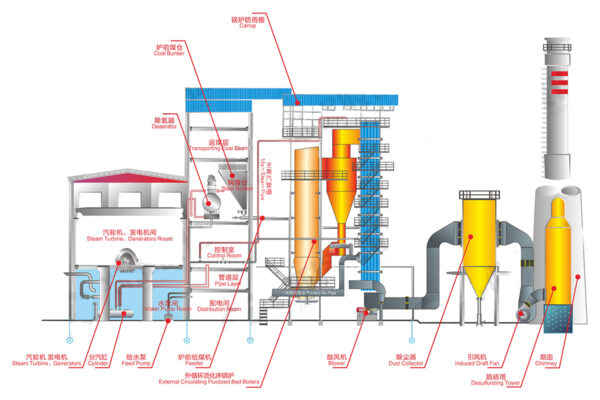Understanding Electrical Contractors: A Comprehensive Guide
Electrical contractors play a crucial role in both residential and commercial construction, as well as in the maintenance and repair of electrical systems. Their work ensures that electrical systems are safely and efficiently installed, maintained, and repaired. This article delves into the role of electrical contractors, their responsibilities, qualifications, and the impact they have on various projects.
What is an Electrical Contractor?
An electrical contractors is a specialized professional or company responsible for designing, installing, maintaining, and repairing electrical systems. These systems include wiring, lighting, control systems, and electrical equipment. Electrical contractors work on a range of projects from new construction and remodeling to troubleshooting and repair.
Types of Electrical Contractors
Electrical contractors can be broadly categorized based on their areas of specialization:
Residential Electrical Contractors: These contractors focus on electrical systems within homes. They handle tasks such as wiring new homes, installing lighting fixtures, upgrading electrical panels, and troubleshooting household electrical issues.
Commercial Electrical Contractors: Specializing in commercial properties, these contractors manage the electrical needs of offices, retail spaces, and industrial buildings. Their work often involves more complex systems and higher voltage requirements compared to residential work.
Industrial Electrical Contractors: These professionals work in industrial settings, such as factories and manufacturing plants. They deal with complex machinery, high voltage systems, and large-scale electrical installations.
Maintenance Electrical Contractors: These contractors specialize in maintaining and repairing existing electrical systems. They ensure that electrical systems continue to operate safely and efficiently over time.
Specialty Electrical Contractors: Some contractors specialize in specific areas such as renewable energy systems, home automation, or security systems. They offer expertise in niche areas that require specialized knowledge.
Responsibilities of Electrical Contractors
Electrical contractors are responsible for a range of tasks, including:
Design and Planning: Electrical contractors work with architects, engineers, and clients to design electrical systems that meet the needs of a project. This includes creating electrical plans, selecting appropriate materials, and ensuring compliance with building codes.
Installation: They are responsible for the installation of electrical systems, including wiring, outlets, switches, lighting, and electrical panels. This process involves following safety protocols and adhering to local electrical codes.
Maintenance and Repair: Electrical contractors perform routine maintenance to ensure electrical systems are functioning correctly. They also handle repairs for faulty wiring, malfunctioning equipment, and other electrical issues.
Testing and Inspection: Before a system can be put into operation, electrical contractors test and inspect the installation to ensure it meets safety standards and operates correctly. They use specialized tools and equipment to conduct these tests.
Upgrades and Renovations: Electrical contractors are often involved in upgrading existing systems to meet new standards or accommodate changes in technology. This may include upgrading electrical panels, adding new circuits, or installing energy-efficient lighting.
Compliance and Safety: Ensuring that electrical installations comply with local building codes and safety regulations is a critical part of an electrical contractor’s job. They must stay updated on changes in codes and standards to ensure compliance.
Qualifications and Training
Becoming an electrical contractor requires a combination of education, training, and experience. The typical path includes:
Education: Many electrical contractors start with a high school diploma or equivalent. Pursuing courses in mathematics, physics, and electronics can be beneficial.
Apprenticeship: A significant portion of training comes from apprenticeships, where individuals work under the supervision of experienced electricians. Apprenticeships typically last 4-5 years and include both on-the-job training and classroom instruction.
Licensing: In many regions, electrical contractors must obtain a license to operate. Licensing requirements vary by location but generally include passing an exam and meeting experience requirements.
Certification: While not always required, certification from professional organizations can enhance an electrical contractor’s credentials. Certification demonstrates expertise in specific areas of electrical work.
Continued Education: Electrical codes and technologies are continually evolving, so ongoing education is essential for electrical contractors to stay current with industry changes and advancements.
Choosing the Right Electrical Contractor
Selecting the right electrical contractor for a project involves several key considerations:
Experience and Expertise: Look for contractors with experience in the specific type of work required. For example, residential contractors may not have the expertise needed for complex commercial projects.
Licensing and Insurance: Verify that the contractor is licensed and insured. This protects both parties in case of accidents or damage during the project.
Reputation and References: Check the contractor’s reputation by reading reviews and asking for references. Speaking with past clients can provide insights into the contractor’s work quality and professionalism.
Written Estimates: Obtain written estimates from multiple contractors to compare costs. Ensure that the estimates include a detailed breakdown of the work to be performed and any potential additional costs.
Safety Practices: Inquire about the contractor’s safety practices and adherence to safety regulations. A good contractor prioritizes safety and follows industry best practices.
The Impact of Electrical Contractors on Projects
Electrical contractors play a vital role in ensuring the success of construction and renovation projects. Their work impacts various aspects of a project:
Safety: Proper installation and maintenance of electrical systems are crucial for safety. Faulty wiring or equipment can pose significant risks, including electrical fires and shock hazards.
Functionality: Electrical contractors ensure that systems are designed and installed to meet the functional needs of a project. This includes providing adequate power supply, lighting, and control systems.
Energy Efficiency: Many electrical contractors are knowledgeable about energy-efficient technologies and can recommend solutions that reduce energy consumption and operating costs.
Compliance: Adherence to local building codes and standards is essential for the legality and safety of electrical installations. Electrical contractors ensure that all work meets these requirements.
Cost-Effectiveness: Effective planning and installation by electrical contractors can help avoid costly repairs and upgrades in the future. Properly designed systems can also lead to long-term savings on energy bills.
Future Trends in Electrical Contracting
The field of electrical contracting is evolving with advancements in technology and changing industry needs. Some emerging trends include:
Smart Technology: The rise of smart home and building technologies is driving demand for electrical contractors who are skilled in installing and integrating these systems. Smart lighting, thermostats, and security systems are becoming increasingly common.
Renewable Energy: With growing interest in sustainable energy solutions, electrical contractors are increasingly involved in the installation of solar panels, wind turbines, and other renewable energy systems.
Electric Vehicles: The adoption of electric vehicles (EVs) is creating a need for EV charging station installations. Electrical contractors are expanding their services to include these installations.
Advanced Training: As technology evolves, ongoing training and certification become more important. Electrical contractors must stay current with new technologies and installation techniques.
Conclusion
Electrical contractors are essential to the functioning of modern homes, businesses, and industrial facilities. Their expertise ensures that electrical systems are installed, maintained, and repaired safely and efficiently. With a combination of education, hands-on training, and adherence to industry standards, electrical contractors play a crucial role in ensuring the reliability and safety of electrical systems. As technology advances, their role will continue to evolve, incorporating new technologies and meeting the growing demands of modern society. Whether working on a residential project or a large-scale commercial installation, the skills and knowledge of electrical contractors are indispensable.

